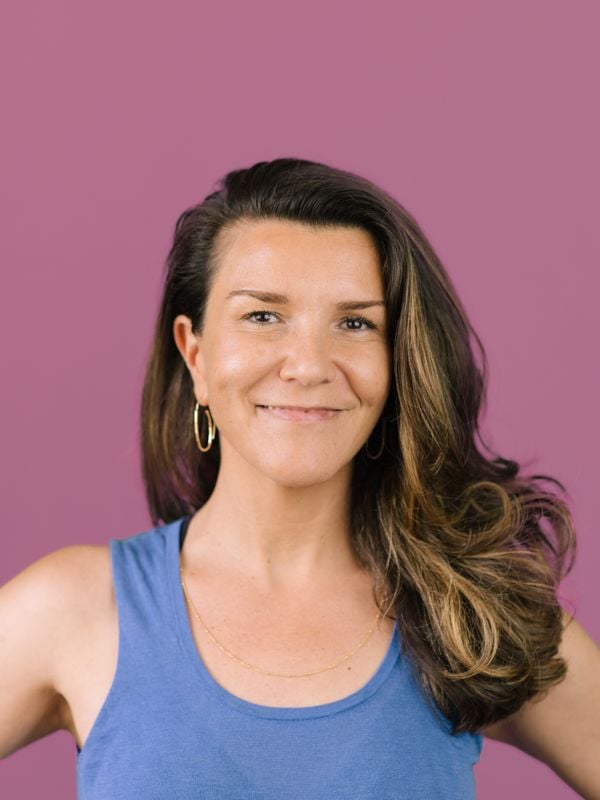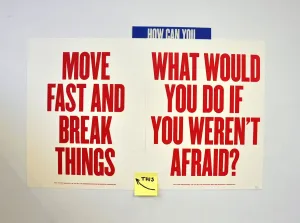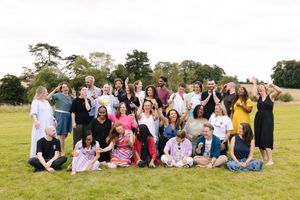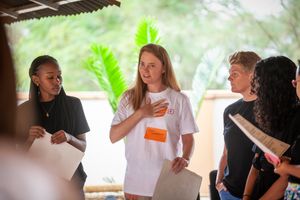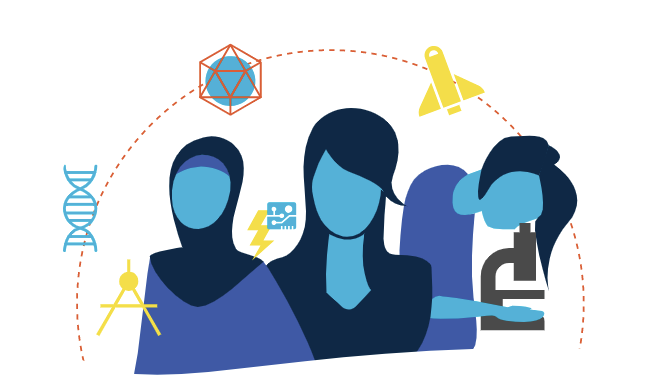
Last week I had the great pleasure of being part of a working session looking at AI through a gender lens as part of UNESCO’s Mobile Learning Week.
I was invited to talk about my own journey to tech as a woman and introduce ways we might shape education and develop cooperation between the private and public sector to foster greater representation. Essentially, how might we offer a women in the global south a seat at the table when it comes to AI — a table dominated by men in the global north?
So, what is the conversation we ought to be having and what actions can we take that might possibly be enough to adjust and redress this balance?
Being that AI is a frontier and emerging technology, a good place to start is by looking at our own work with DFID, part of which includes Frontier Technologies Hub, which I’ve had the great privilege of leading for over two years on behalf of Brink.
We don’t have to look too far into our portfolio of 22 pilots to see how frontier tech can have positive impact for women.
Smart contraceptive vending machines in urban slums
The morning after pill can be a lifeline to girls living in urban slums, vulnerable to sexual violence and in a context where childbirth is often the number one killer of adolescent girls. Contraceptive vending machines offering emergency contraception has been shown to provide discreet, effective help to girls with one problem: they regularly run out of stock without anybody knowing. We’re connecting them to the internet so that we can be alerted resupply the machines with stock.
Electrifying clinics in rural Zimbabwe
Rural Zimbabwe has a rural electrification rate of 20%. We are electrifying clinics so that women are able to give birth at night and that when they do, the first breath their baby takes isn’t of kerosene soaked air. In the first month of electrifying a clinic in the rural area of Jari, 5 babies were born under electric light in the village for the first time. It was 2018.
Confidential sexual health chatbot for young Kenyans
We’ve recently agreed to create a chatbot offering confidential advice to young Kenyans in relation to sex and their sexual health journey — the kinds of conversation that shame and stigma make it impossible to have in person.
But there’s another angle on gender on our programme that is probably more telling and that’s the gender representation of those working on and developing the tech.
Independent Technical Experts
Because we work with a number and range of technologies, The Hub can’t be expected to know all of them to the extent we might need. To help, we often appoint Independent Technical Experts to act as advisors and essentially make us intelligent customers of these technologies. Of the 19 experts we have appointed, only 3 have been women.
Implementing partners
We also appoint partners to implement the work in country. Of our 31 partners, 8 are women.
DFID Pioneers
We have been mindful of gender representation as a Hub, making sure that we follow useful guidelines on how we describe opportunities and showcase representation. One part of the programme seems to see the benefit of some of these changes. As an open innovation programme, we put out a call for ideas from DFID staff and bring the most promising ideas into the portfolio, led by the Pioneers who suggested them. The first call in 2016 resulted in 5 Pioneers, with no women. Now, in 2019, 4 calls later that picture has changed dramatically, with 11 pioneers and 6 women. 55% representation is well above average, especially for frontier and emerging technologies, which the whole team is incredibly proud of. Let’s hope the partners we bring on board for this new cohort continues this trend.
Technology, the new sector that’s stuck in a bygone era when it comes to gender
It’s still remarkable and mind boggling to me that we’re having this conversation at all in 2019 and in such a new sector. Technology is a new kid on the block, we have to ask ourselves why it isn’t the most progressive, most forward thinking, inclusive sector of all including (or maybe mostly?) in the global north. At Google, only 21% of engineering roles are filled by women and when Wired magazine looked specifically at AI roles, that dropped to a measly 12%.
And when you juxtapose that with 49 million girls out of school in sub-Saharan Africa the size of the challenge sharpens into focus.
If we’re asking how we might get women in the global south a seat at the table to shape the direction of AI, we need to consider a girl in Tanzania, out of school, a possible victim of FGM, and how we might get her a seat at, literally, the most gendered tables in the world.
- More of the same will achieve nothing. An education policy change here, or a private partnership there will take the best part of 100 years to make the progress we need, by which time AI will have eaten all our lunch.
- There has never been a greater need for imaginative, deeply critical, fresh thinking if we’re going to deliver a radically better world. It’s time to assume nothing is sacred and question everything, especially stuff that seems obvious.
Accepted wisdom is a far greater threat than AI
Given the epic gap we need to bridge, it’s clear to me that we need to rewrite our rules. That starts with a close examination of what may seem obvious.
While it might be obvious that we need more women making AI, we need to remember that the future belongs not to those who will create the AI, but those who will complement the AI. Engineers are up there with lawyers and truck drivers to be replaced by AI so churning out generations of female engineers might backfire.
While it might seem obvious that getting women a seat at the table is important (and it is) this is going to take a really long time. Meanwhile, as the incredible women leading The Feminist Internet advocate, let’s think about how we might imbue those who already have a seat at the table with feminist values. The training data is being set today.
To make any meaningful progress, cooperation between the public and private sector is imperative — we don’t have time to take action in silos. But the typecasting of private sector as fast and innovative and government as slow and unimaginative has to be scrapped.
What do you think needs to be done for difference to be made?
***********
Much of this thinking was informed by a vibrant conversation on LinkedIn while preparing for the session. The conversation has evolved to include some really great additional factors like:
Dr Charlotte Webb who heads up Feminist Internet on the importance of feminist values, not just women.
Sarah McGeehan who sits on the admissions panel for admissions at one of the world’s leading AI PhD universities on how she’s thinking about boosting female admissions.
The difference between inclusion and representation from Mia Dand.

